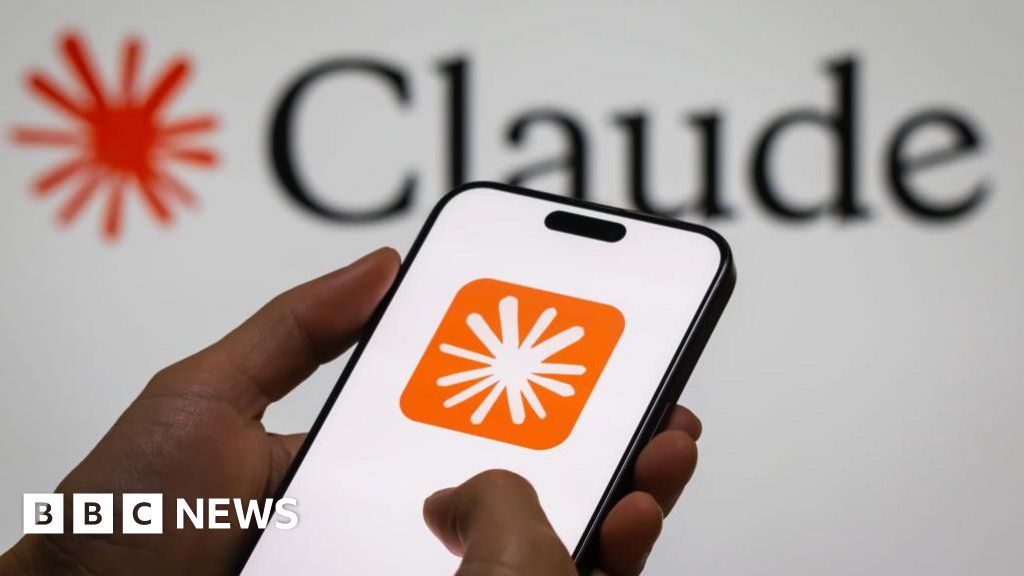ARTICLE AD BOX
By Jane Wakefield
Technology reporter
Image source, Getty Images
Image caption,The road ahead is exciting, new Arm boss Rene Haas says
After years of major regulatory struggle in the UK, US and EU, what would have been the biggest computer-chip deal in history is now dead in the water.
But the new boss of Arm, the Cambridge-based company often described as one of the UK's biggest technology success stories, is upbeat.
And although he blames the failure of Arm's planned sale to Nvidia on a "challenging regulatory environment", Rene Haas - in his first week as chief executive - is keen to emphasise it will be just fine on its own.
"We are very excited about the future for Arm as an independent company again," he tells BBC News.
"There isn't anything Nvidia and Arm could do together that we can't do by ourselves."
Chip designs
Softbank, which acquired Arm in 2016, plans an initial public offering within a year.
But some things won't change.
Arm's technology for semiconductors is already widely used in mobile phones, tablets and digital televisions.
It licenses its chip designs to customers rather than manufacture them itself.
And Nvidia has confirmed its own 20-year licence agreement with the company will continue.
Image source, Getty Images
Image caption,The Nvidia deal was challenged by regulators in the US and UK, worried it may stifle innovation
"In many ways it is a very comfortable rhythm in terms of the business we have," Mr Haas says.
"The difference now is we are coming out of the regulatory process and are back on our own two feet again and can start thinking about new opportunities."
These will include continuing to expand into areas such as cloud computing and the automotive industry.
'Most exciting'
"Those two markets are seeing a huge amount of growth and really have the same characteristics to that of the smartphone," Mr Haas says.
"They both need more and more compute performance but also more and more efficiency - whether it is a data centre where limited power can come in or an electric vehicle that runs on a battery.
"Both are also software intensive."
But he also intends to go a whole lot further.
"The most exciting thing is there isn't an end market you can look at - whether that is the metaverse, IOT [internet of things], artificial intelligence - and say Arm can't have a place there," Mr Haas says.
Image source, Getty Images
Image caption,The global chip shortage has made the industry rethink
For a company he calls "one of the best kept secrets in the industry", Arm has garnered a lot of headlines in the past year or so.
But then so too has the chip industry more generally, as shortages affect the availability of electronic goods.
"The pandemic put constraints on all supply chains - in particular, very long lead times for building factories - so to respond to a pandemic by adding capacity is very very hard in our business," Mr Haas says.
"Layer on top of that insatiable demand for all things digital - all of that adds up to a perfect storm of huge demand for our product.
"I don't see that changing any time soon.
"Capacity will ultimately catch up - but at the same time, the pandemic accelerates trends around digitalisation which lend themselves well to semiconductors."
And that may require radical change.
Technical challenges
"As you start getting to very small geometries, some of the laws of physics get very challenging," Mr Haas says.
"One of the key things that will be an area of innovation in the future is not only the semiconductor itself but the packaging of those semi-conductors, how they are built, how the die [the square of silicon] is built, how to put more transistors on a die... there are lot of exciting technical challenges."
Image source, Getty Images
Image caption,The Friday afternoon after-work pint was admired by Mr Haas when he lived in London
An American living in San Jose, Mr Haas is nevertheless keen to emphasise his British credentials.
"I lived in London for three years, from 2017 to 2020," he says.
"I took the train every day from King's Cross to Cambridge, which was a nice reverse commute because no-one was on it going that way."
And his favourite part of British life was pub culture.
"I always loved on a Friday afternoon, at 15:00, the pubs had people just standing outside and drinking a pint and being totally laid-back," Mr Haas says.
And while he doesn't reveal whether he himself ever indulged, if anyone deserves a laid-back pint to mark the end of the working week this Friday, it is probably him.
Hear more on this story on the BBC World Service's Tech Tent, programme at 09:00, Thursday, 10 February, or available after on podcast.

 3 years ago
58
3 years ago
58








 English (US) ·
English (US) ·